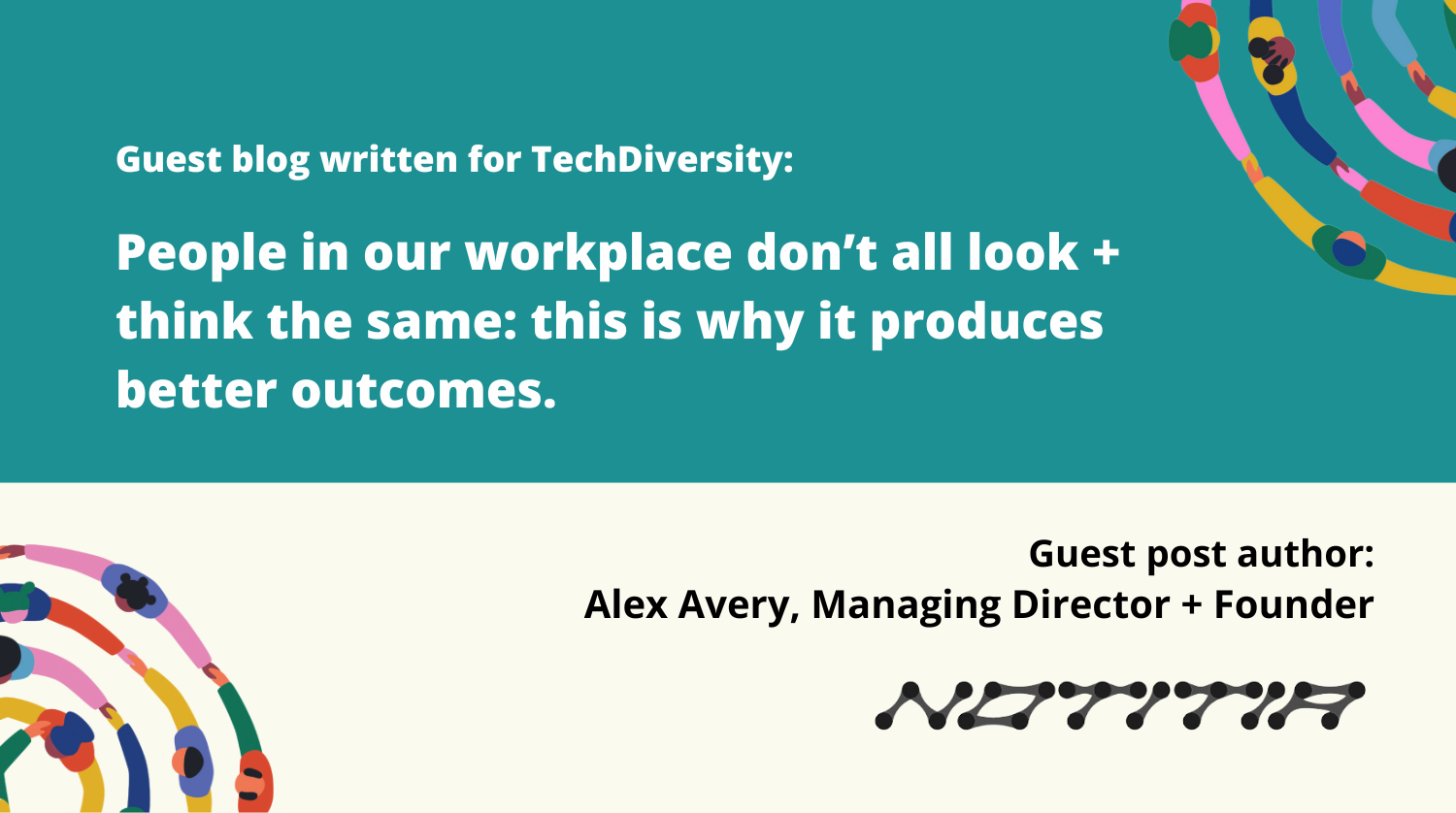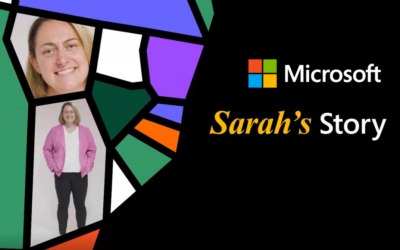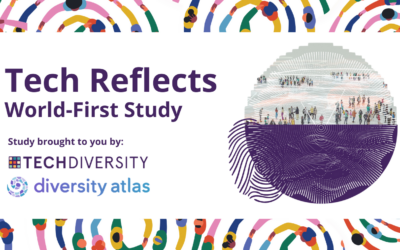The TechDiversity Awards, a captivating celebration held in May, ignited a spark of inspiration within Notitia, compelling us to pen this guest blog for the TechDiversity Community. The awards ceremony eloquently demonstrated the transformative power of shared storytelling and the profound impact of diverse perspectives on driving positive change in the technology workforce. Witnessing the remarkable stories of others at the awards ceremony, we couldn’t help but feel the urge to share our own journey and experiences, recognising the significance of equity, diversity, and inclusion in shaping a thriving and progressive workplace.
About Notitia
Notitia is an end-to-end data strategy and analytics firm, with a 50/50 gender split in our executive and 60% female workforce in our extended team. We’ve sponsored visas to attract and retain great people. We’re from diverse backgrounds. Most of us have not come from a “techy” career pathway. We prioritise ability, values and individual ambition and drive, over “on-paper” qualifications or industry “norms”.
Diversity produces much better outcomes for business and our clients. It’s also no-brainer for fuelling the tech industry’s workforce.
This is backed through Australian research, including that of Dr Juliet Bourke, Professor of Practice at UNSW Sydney’s School of Management and Governance, as explained in her book.
Which two heads are better than one? The extraordinary power of diversity of thinking and inclusive leadership.
Dr Bourke says that in addition to making sure organisations draw from the full pool of talent, diversity reduces the risk of groupthink by up to 30%, increases the potential of innovation by up to 20% and generates higher levels of trust in the followers of decision makers, thus making it easier to implement decisions.
“Diversity of thinking is about making sure the different elements of the group come together so you need everyone in that group to have a slightly different frame of reference so that in combination creates this really rich, robust diversity of thinking,” Dr Bourke says.
Diversity driving tech workforce
Australia’s surge in demand for skilled technology workers makes it the seventh largest employer. And we’re experiencing significant shortages across the sector, with additional 650,000 tech workers needed by 2030, according to The Tech Council of Australia (TCA).
In their report, TCA highlighted that “the main source of future tech workers will come from people transitioning from other parts of the economy”.
This includes workers returning to the workplace after leave, those looking to upskill or change career paths and skilled migrants.
According to the Government’s 2022 STEM Equity Monitor, women made up 27% of the total STEM workforce (which was 1% less than year prior) and 23% of all managers were women. Compare this to the total Australian labour force ABS figures, where employment-to-population participation rate for females is at 62.45% and males is at 71.1%.
Late last year, the government addressed the need for Australia, specifically the technology sector, to access more skilled migrants, boosting the limit by an extra 6,800 places, in 2022-23.
What does this mean? Aside from it being fundamentally ethical, diversity has a huge role in the tech workforce in 2023.
How tech businesses “do our part” to drive a strong + diverse workforce:
- Work on unconscious bias and how this impacts your culture, hiring and retention. Tap into the huge pool of workers that may not necessarily look or think like you, or your current workforce. Dr Bourke explains in this video, that it’s important to “have awareness of biases that infiltrate our thinking” that “leads to some action”.
- Hire people with flexibility in mind: part time hours, remote and hybrid working arrangements. Support your workforce with family-orientated employee benefits such as parental leave and caregiving leave. At Notitia, we provide our staff up to six months of paid parental leave, and Superannuation matching. Aside from the health benefits of flexible working, The Commission for Gender Equality in the Public Sector also points to research that supports flexibility and leave as “important enablers of gender equality for organisations across Australia.”
- Train our sector’s future workforce. It means that not all your candidates will come straight from a traditional university pathway, but they do show the willingness and ability to learn. The benefits of training workers to fit tech roles is outlined in case studies by the TCA. We’ve found that investing in bright people pays a massive dividend internally and creates a stronger workforce.
- Migration is important to provide highly specialised and experienced workers, who can manage and mentor junior employees and people reskilling to new jobs in the sector. This might mean that your business sponsors employees, while the Australian Government works through the changes set for the migration system, outlined by Minister for Home Affairs, Claire O’ Neil.
- Make equity central to your DEI plan – Equity in DEI ensures fair treatment, opportunities, and resources for all individuals, fostering an inclusive and empowering environment that can catalyse meaningful transformation and drive business success. Foundations such as TechDiversity offer an array of education and resources that can propel your organisation forward on its DE+I journey, including a focus on equity, click here to join and access their free resources.
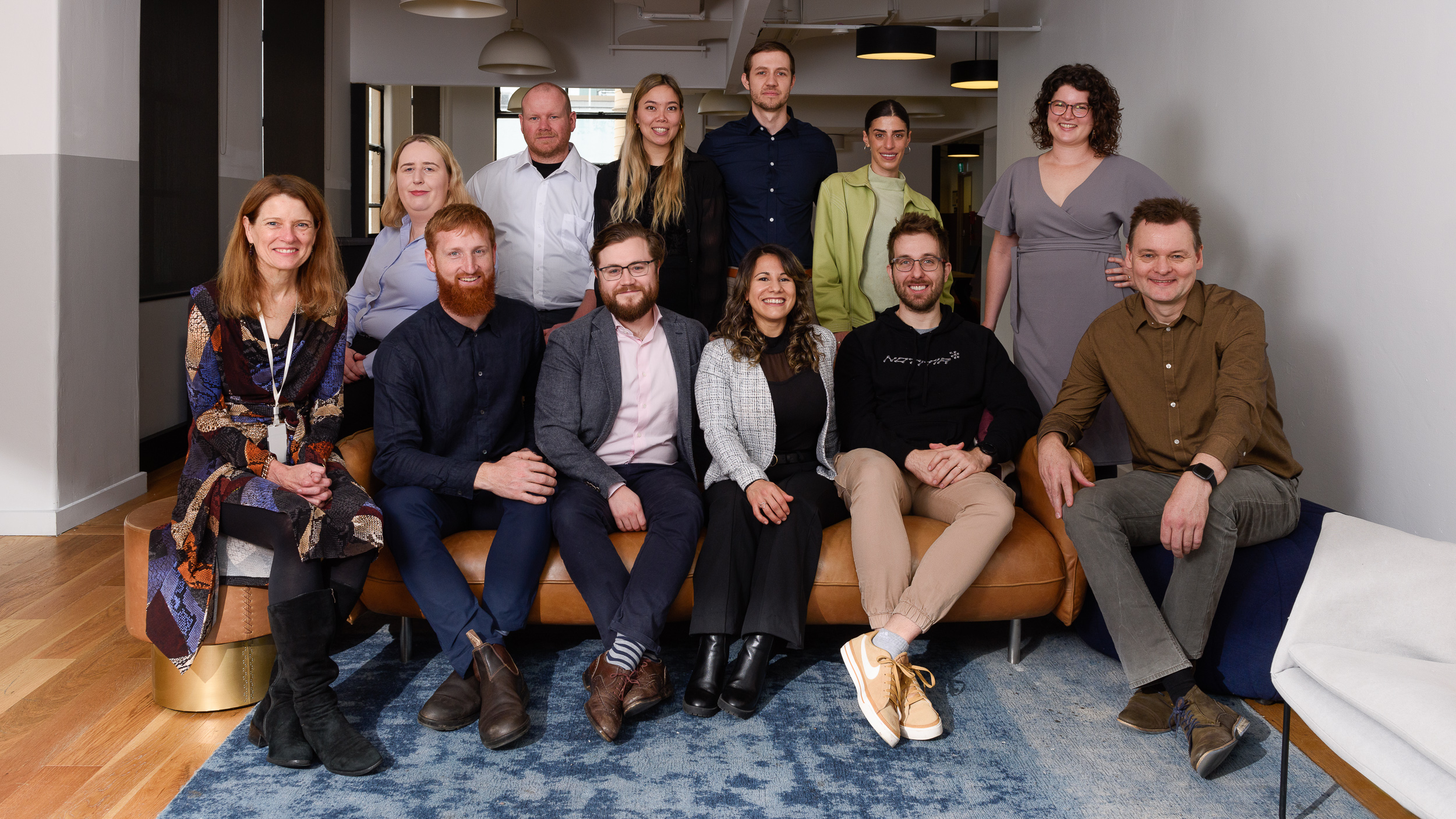
Notita Team Photo 2023
The diversity + workplace culture initiatives we’ve put into play at Notitia
Notitia has a team of 15 people across Melbourne, Adelaide, Tasmania and Perth (and growing!).
We see diversity as a baseline for a meaningful workplace, that we all actually want to be a part of. And it’s not something that we’ll get 100% right, or ever be “finished” in achieving.
Our initiatives are reviewed, changed, and improved ongoingly:
- Flexible working arrangements throughout all levels of our team, from graduates through to directors. Our people can work part time, remotely + in flexible arrangements. This allows them to allocate the rest of the week for other parts of their life including balancing career with family, pursuing other commitments; ensuring their health is a priority.
- Paid roles available to those who are changing careers from a non-technical background. Our team is strengthened by different skills + backgrounds, we haven’t all come straight from a STEM career, we also have PhDs in health science, neuroscience, biomedical science, design + communications.
- Visas to enable Notitia to employ individuals with the appropriate skills who are not Australian citizens.
- Employee benefits that are over and above industry standards. As a founder-owner led business, it really just boils down to “doing the right thing for fellow humans”. Our workplace initiatives position our people to do the best job possible, in tune with priorities such as their health, career aspirations, interests and family work-life balance.
- Generous parental leave policy and return-to-work plans (with additional paid leave) to allow our people to spend time with their family before transitioning back to the workplace.
And, yes. This gives us a huge competitive advantage in what we do.
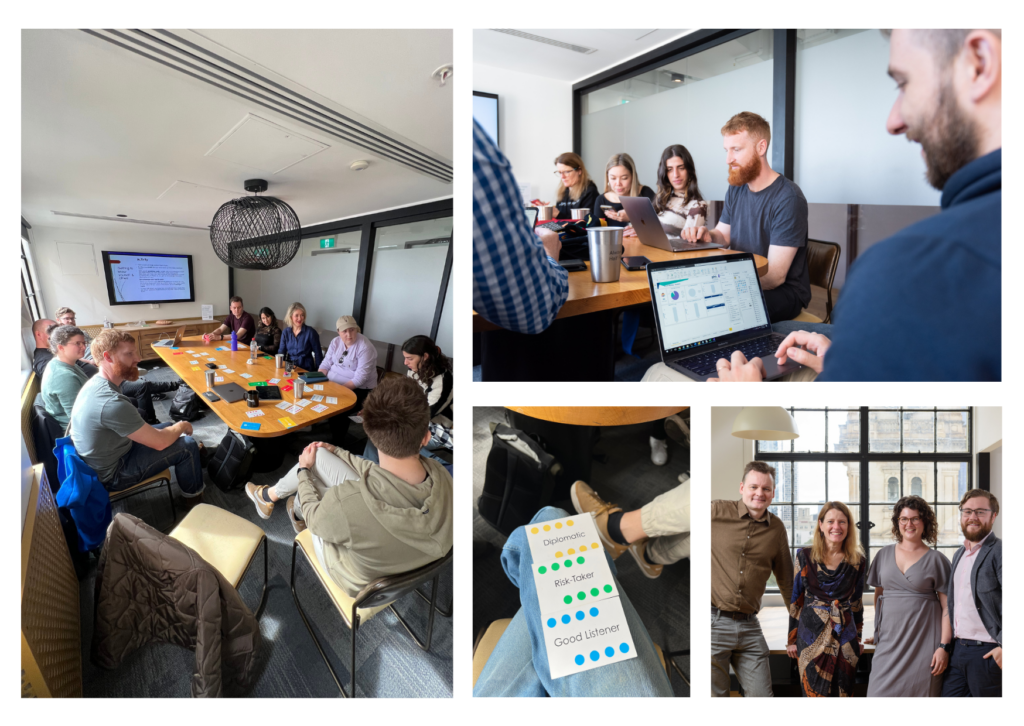
Diversity of thought + inclusive practices = innovation, creative thinking + better solutions.
“Diversity of thought” is our strength: the reason why we produce high quality outcomes and solve the big problems for our clients.
Notitia’s top #5 reasons why diverse is better:
- “Diversity of thought” is so valuable in our day-to-day work (that it’s actually included in our core values). Working in an environment with different “ways of thinking”, approaches to work and a culture that enables individuals to “challenge the status quo” lends us to reducing groupthink. We’ve carefully handpicked an extremely capable team for this reason.
- We’re aware of subconscious biases. As a team, we strive to give everyone the space to contribute and share their point of view.
- Our differences create unique and effective solutions for our clients. We’re able to critique a problem from multiple perspectives and approaches. We each have strengths and weaknesses that complement the whole.
- We better understand how to mould our “ways of working” to suit our clients. Because our team is diverse, we continuously work on how we understand ourselves and others. Our team building activities focus on better ways to communicate, being more self-aware and accepting of different ways of working. We don’t dictate methodologies or approaches onto clients, we remain flexible.
- The diversity we have (and it’s by no means perfect) helps us to understand and relate to our clients who are from diverse backgrounds, industries and abilities.
“Diverse Thinking” – Read The Instructions First
Having an inclusive and diverse workforce – aside from this being driven from an ethical standpoint – it also creates much better results for our business, our people, our clients and the technology sector.
But, this also comes with a warning, Dr Bourke says.
“You do need people within the group who have a certain level of skill and capability, and no lack of that basic skill and capability can be made up for by just throwing different people together and giving them a bit of a shake, so to speak.
“I don’t really want a random group of people performing brain surgery on me, with the idea they will all come up with a great way of performing an operation – there’s a basic level of capability there that’s needed.”
Another misconception is the belief that every idea generated in a brainstorming session should be put on the table.
“Well, actually, some ideas are bad ideas”, Dr Bourke says.
“There has been a shift towards recognising the value of greater levels of introspection and thoughtfulness so that you actually come to the table with some thinking before speaking.”
Notitia has seen this first hand. We have seen that innovation is stimulated by assembling a capable team who each bring slightly different approaches to solving problems, encouraging individual thinking and integration-style conversations.
Notitia is a leading end-to-end data strategy and analytics firm with offices in Melbourne and Adelaide. They’ve helped more than 60 clients, across nearly every Australian sector, to get the most value from their business data and transform what they do through data-driven decisions.

